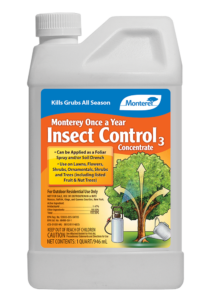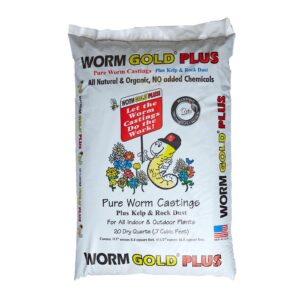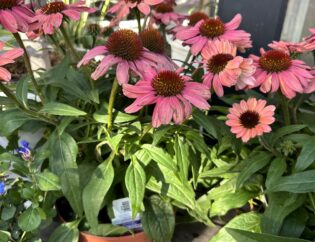We have learned in the recent months that one of your favorite insecticides is being eliminated for use in California soon.
 One of our most popular insecticides, Monterey Once a Year, and similar products with the active ingredient Imidacloprid are being restricted for use in our state. It is one of the several Neonicotinoids being restricted.
One of our most popular insecticides, Monterey Once a Year, and similar products with the active ingredient Imidacloprid are being restricted for use in our state. It is one of the several Neonicotinoids being restricted.
Registered for agricultural and non-agricultural use in 1994, Imidacloprid quickly became a gardener favorite for it’s long lasting insect control. Literally, once a year treatment even on large trees. It has been used as a liquid soil drench to prevent trees from “dripping sap” which is actually a symptom of an insect infestation, like aphid.
There is no replacement on the market or even being developed.
What to do instead
 For those who have dealt with the persistent, stickiness of an infested tree, this is frustrating news. Large trees are impractical to spray making systemic insecticides like Imidacloprid a headache saver. The alternative is to cultivate healthy trees that are more resistant to insects. This is a perfect example of the old proverb “An ounce of prevention is worth a pound of cure”. So how do we do that? Especially for a large tree or trees? Invest in organic fertilizers, water properly and apply Worm Gold Plus by California Vermiculture.
For those who have dealt with the persistent, stickiness of an infested tree, this is frustrating news. Large trees are impractical to spray making systemic insecticides like Imidacloprid a headache saver. The alternative is to cultivate healthy trees that are more resistant to insects. This is a perfect example of the old proverb “An ounce of prevention is worth a pound of cure”. So how do we do that? Especially for a large tree or trees? Invest in organic fertilizers, water properly and apply Worm Gold Plus by California Vermiculture.
Worm castings, and particularly Worm Gold, are quite nearly nature’s miracle worker. Numerous studies have been done to assess what good, clean earthworm castings do for soil and in turn for plants. In case you aren’t familiar with these virtues, here is a quick list:
- increases growth 30%-400%
- significant increase in growth and vitality
- healthy soil = healthy plants = less plant problems
Source: https://www.wormgold.com/how-it-works
How to Use
Application: Good for all plants!
Flowers, Vegetables, Trees, & Turf
-
10-20% Pot Mix
-
One (1) inch layer over root zone with 1” layer of compost
-
Every six (6) months (¼ ” layer WG Plus ¼” layer Compost)
-
Trees 12 inch wide ring at drip line.
Source: https://www.wormgold.com/how-it-works
Diving Deeper
There is also talk in the industry that the food they feed the worms at California Vermiculture create very “sweet” castings. These castings create higher brix measurements (sugar measurements in plants) that some insects like aphids can not tolerate. See article below posted by Worm Gold on Linked In.

